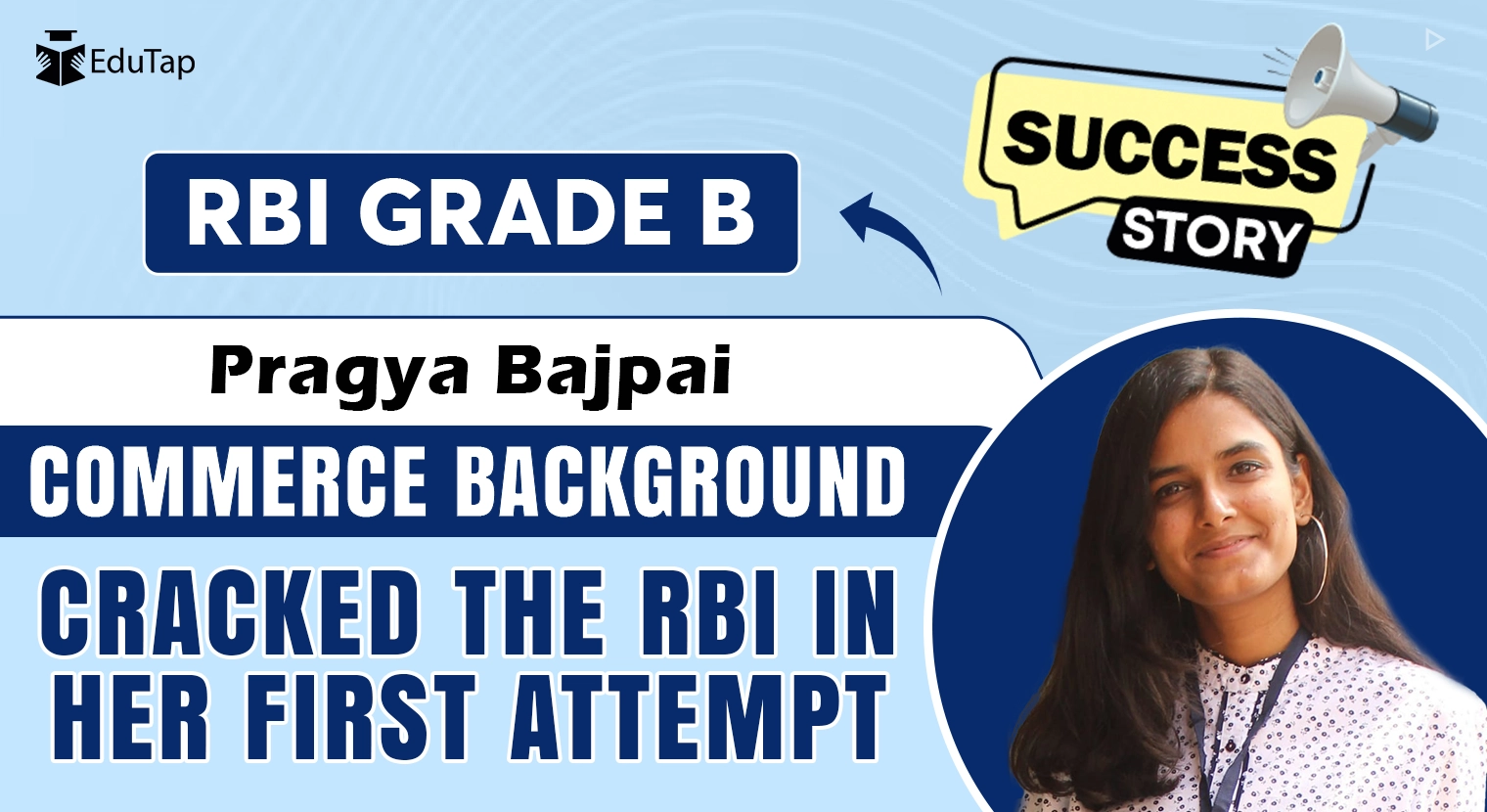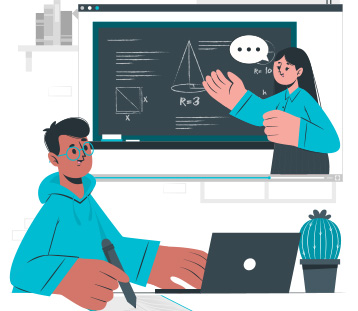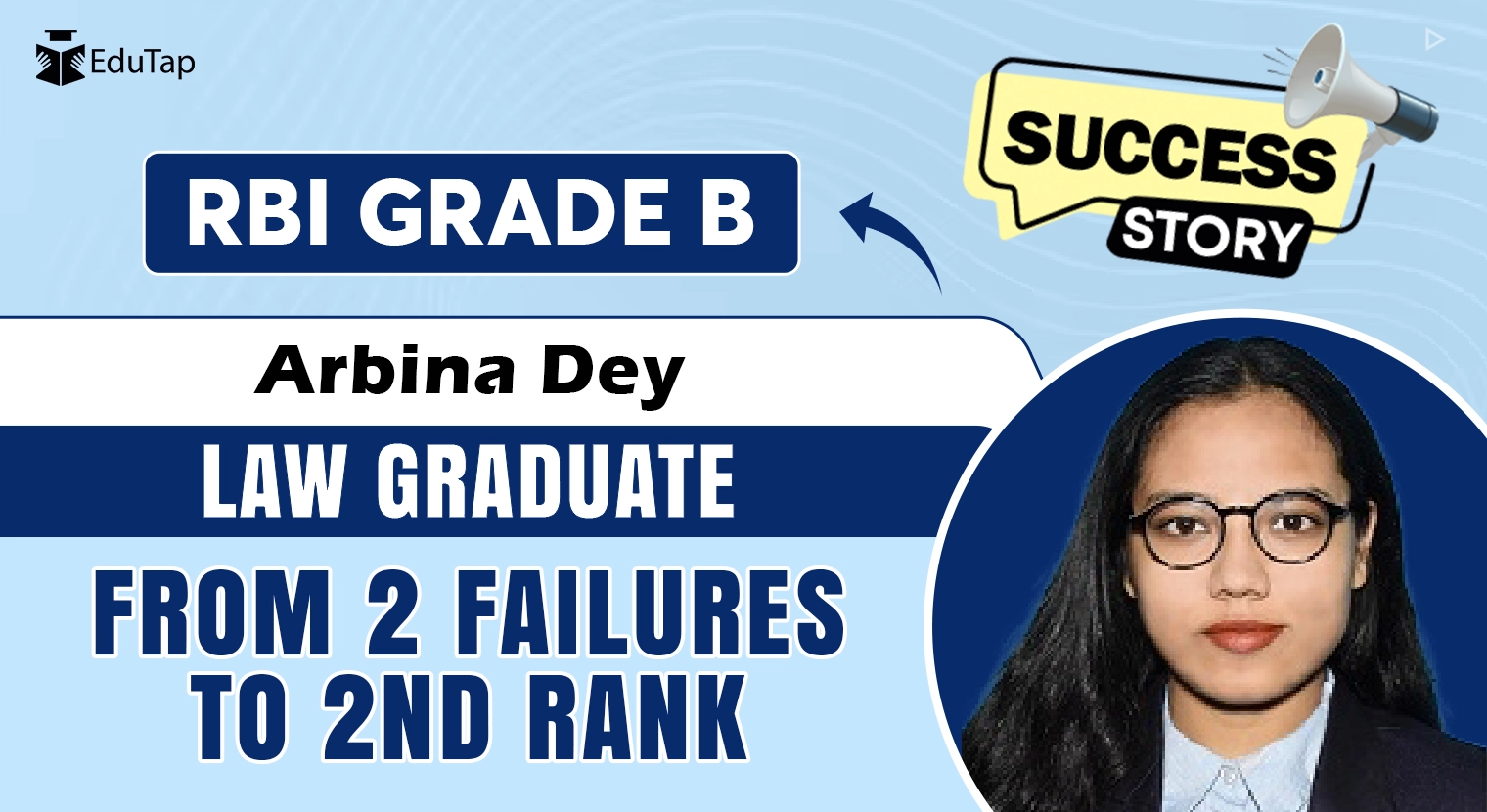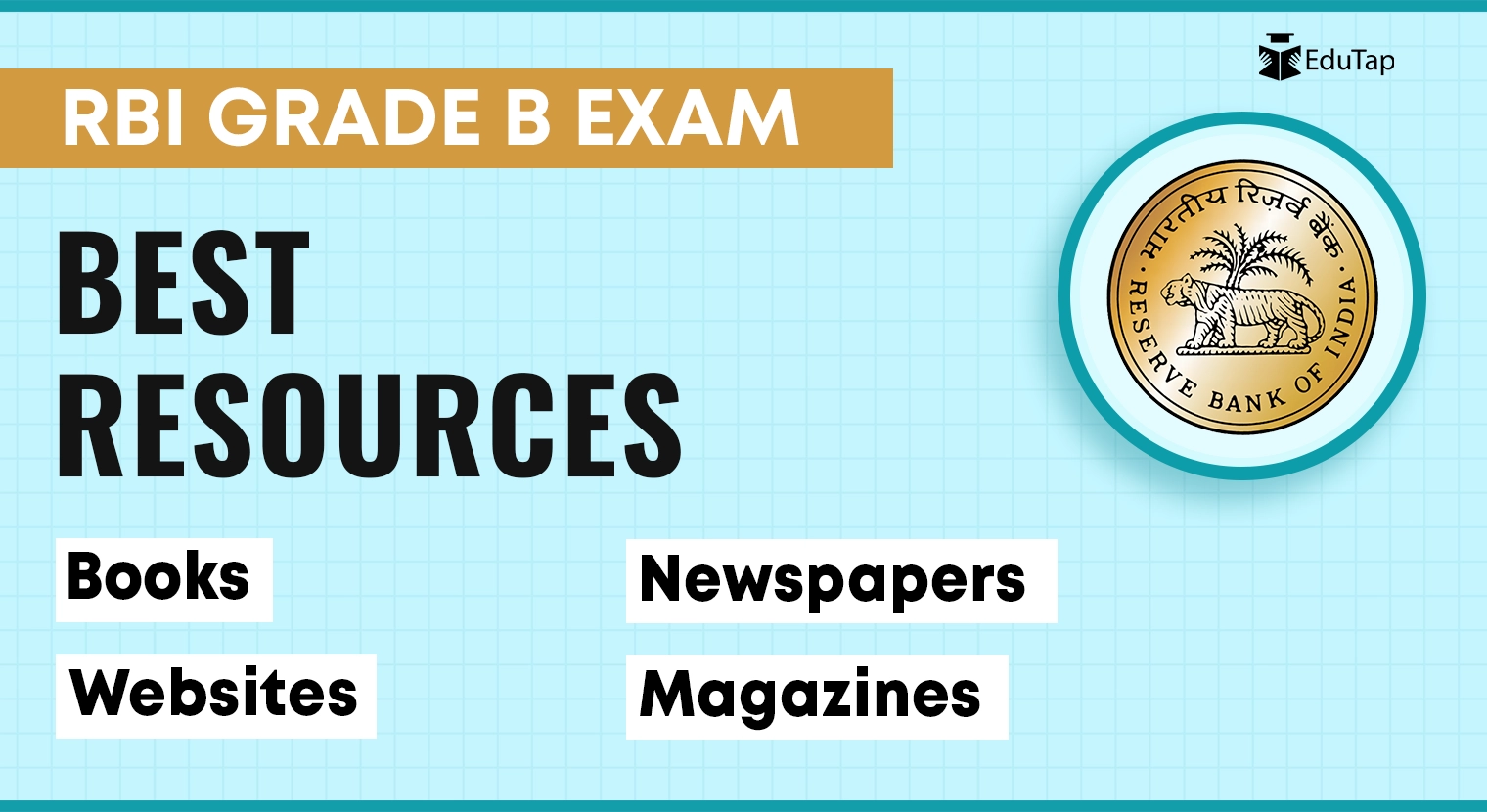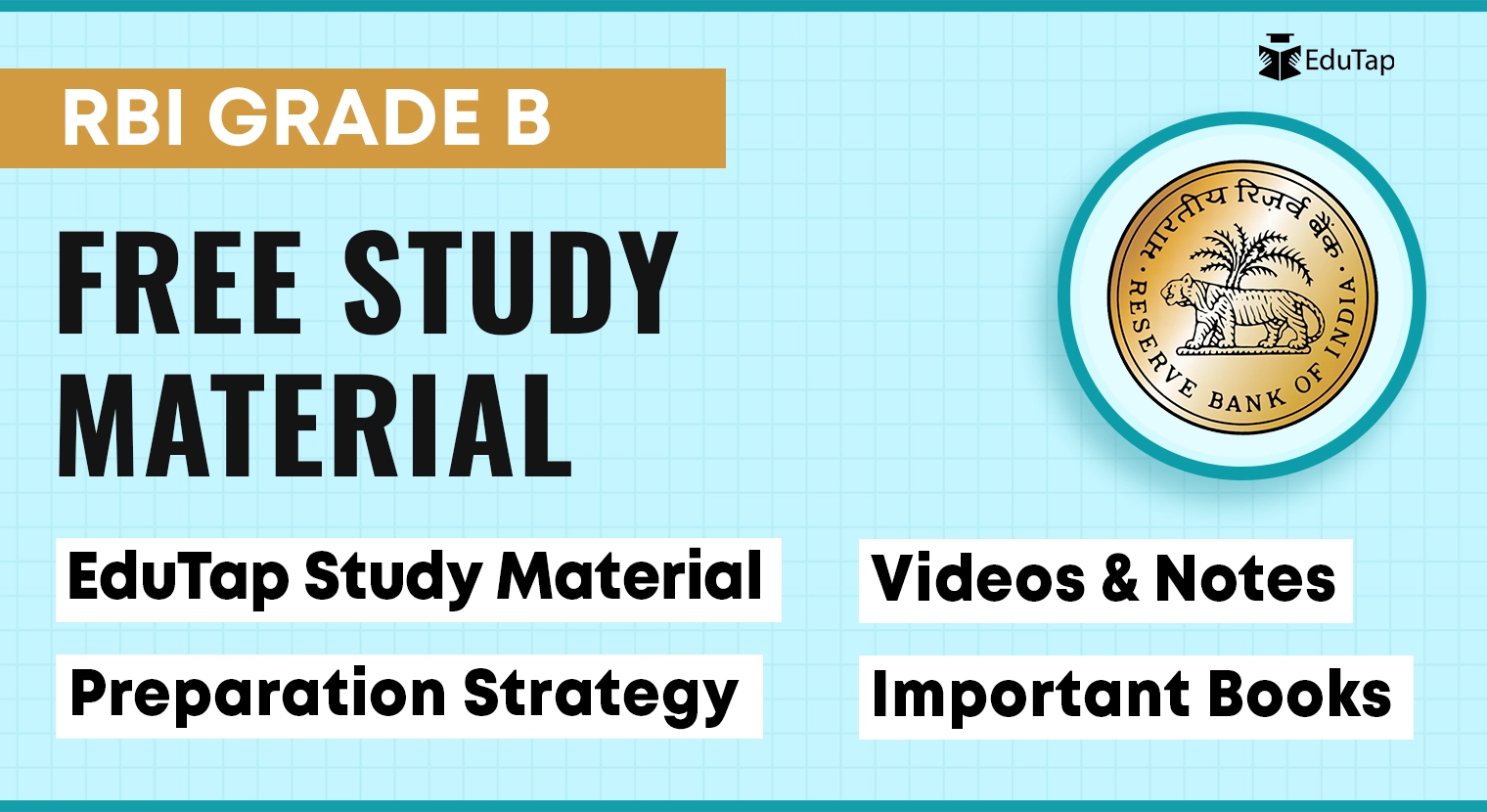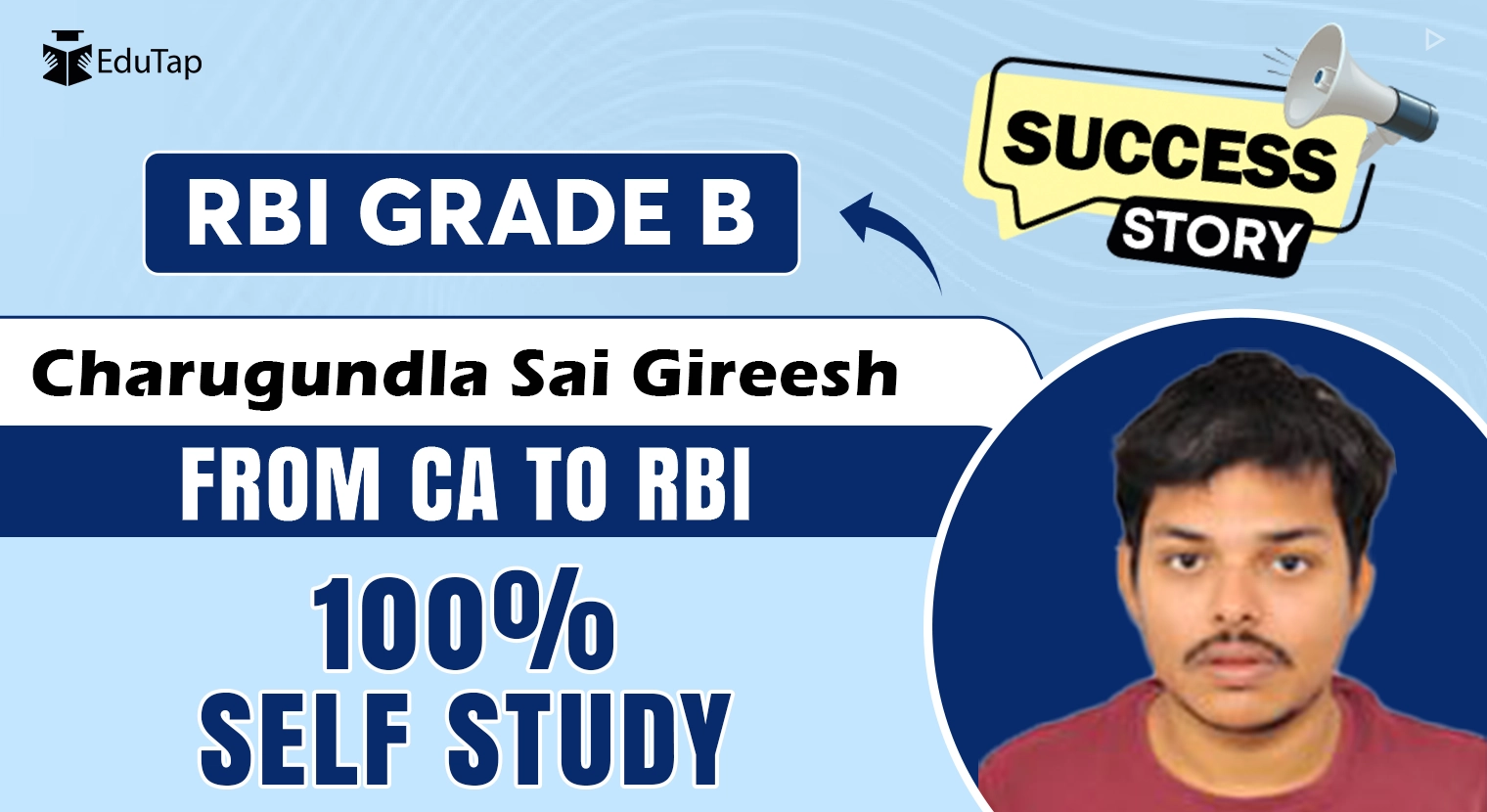Dreams do come true, even on the first try! Ms. Pragya Bajpai defied the odds and cracked the RBI Grade B exam in her very first attempt. This inspiring story goes beyond the celebration of success. It delves into Ms. Pragya’s strategic preparation, unwavering determination, and the valuable lessons she learned along the way.
In this article, Pragya shares her RBI Grade B journey and unravels the secrets to her remarkable achievement.
Background
- Graduated with a B.Com honors degree from Lady Shri Ram College (Delhi University)
- Had prepared for SBI PO and IBPS PO (reached IBPS interview)
- Cracked the RBI Grade B Exam in the first attempt

Brief Introduction
I graduated with a B.Com (Hons) degree from Lady Shri Ram College, affiliated with Delhi University, in the latter half of 2020. After graduating, I opted not to pursue any immediate job opportunities or placements and instead began preparing for competitive exams.
While I initially considered pursuing a Master’s degree, the uncertainties surrounding the COVID-19 lockdown led me to change course. I decided to focus on exams like SBI PO and IBPS PO to gain a better understanding of the exam format. This was my first attempt at the RBI Grade B exam, and I’m fortunate to have cleared it.
My Learnings from the SBI and IBPS PO Exams
When I took the SBI and IBPS PO examinations, my preparation was definitely lacking. For example, in the IBPS exam, I reached the interview stage, but completely messed it up. Looking back, I realized my confidence level was very low.
This experience taught me that confidence is a key area I need to work on, especially since interviews play a crucial role in candidate selection nowadays. In addition to confidence, I identified weaknesses in my quantitative aptitude and reasoning skills. These are also critical for Phase 1 of the RBI Grade B exam.
During the SBI and IBPS PO exams, I spent too much time on puzzles and similar questions, neglecting the types that could have earned me more marks. I learned that it’s more strategic to focus on simpler questions. This strategy will not only save my time but also help me score more marks and clear the cutoff.
IBPS PO interviews exposed my confidence gap.
My Motivators for RBI Grade B
When I learned about the RBI Grade B exam in my third year of college, I wasn’t sure if I should take it. After the lockdown, I did some research to understand the exam format and subjects. However, just as I started planning my preparation, the exam pattern changed significantly. Descriptive writing was now included, which created a dilemma for me. Should I pursue the exam with this new format?
Despite the uncertainty, I decided to kickstart my preparation. Of course, I faced several challenges along the way. Family issues and other obstacles arose, and my motivation often dipped. Maintaining the same routine every day felt overwhelming, so I incorporated frequent breaks. While this approach might not work for everyone, it definitely boosted my efficiency and productivity.
Taking breaks involved socializing with friends and spending quality time with family. Being around loved ones provided the support and motivation I needed to keep going. I realized I wasn’t just doing this for myself, but for those who believed in me.
Following the schedule, maintaining my routine, and taking timely breaks helped me crack the RBI Grade B exam.
My RBI Grade B Preparation Approach
I created a daily schedule that focused on achieving specific targets rather than adhering to a strict time-based structure. Each day, I’d set goals for particular chapters I needed to cover, aiming to complete at least 70-80% of the planned tasks. This target-based approach proved to be very helpful.
To ensure I adhered to my daily plan, I used to take multiple breaks to refresh my mind. Additionally, I practiced yoga daily, which not only kept me physically fit but also provided the mental stability necessary for preparing for the RBI Grade B exam.
In addition to yoga, I used to listen to music and just dance around. I believe it’s crucial to feel rejuvenated throughout the studying process; otherwise, low motivation and morale can make you lose sight of your goals.
I created a daily schedule that focused on achieving specific targets rather than adhering to a strict time-based structure.
How EduTap Empowered My RBI Grade B Journey
Once I decided to prepare for the RBI Grade B exam, EduTap was the first resource I encountered. After some research, I discovered that their materials were highly relevant, so I subscribed to their course.
Immediately, I began my preparation using their materials, although not with intense focus at first. In my free time, I’d dedicate an hour or two to watching EduTap’s engaging videos. The examples they used to explain complex concepts were commendable; they truly helped everything click into place.
Later, after the RBI Grade B exam notification was released, their marathon sessions proved incredibly beneficial. The flowcharts for schemes and other concepts were particularly effective. Overall, I’m very glad I subscribed to EduTap’s course.
Once I decided to prepare for the RBI Grade B exam, EduTap was the first resource I encountered.
My RBI Grade B Phase 1 Preparation Strategy
I had a strong grasp of English and General Awareness subjects, but as GA plays a major role in RBI Grade B Phase 1, I had to focus more on GA. While confident in my English skills, I knew I needed to focus more on Quant and Reasoning as they were my weaker areas. My main focus was just to clear the sectional cut-offs of Quant and Reasoning.
To improve my Quant and Reasoning skills and gain conceptual clarity, I primarily relied on YouTube videos. I also solved as many mock tests as possible to improve my problem-solving abilities.
For English and GA, I only practiced mock tests. I believed in quiz-based learning over simply reading and taking notes. Quizzes helped with recall, a crucial aspect of retaining information. Therefore, I focused heavily on GA and English to ensure I cleared the Phase 1 cut-off.
An important point regarding GA is the need to retain a lot of information on current affairs. This is best achieved through daily practice of quizzes and questions. Simply reading and memorizing wasn’t effective for me. Solving quizzes significantly improved my recall.
I had a strong grasp of English and General Awareness sections and aimed just to clear the sectional cut-offs of Quant and Reasoning.
Importance of Analyzing Your Performance
After analyzing my performance in Quant and Reasoning, I concluded that spending excessive time on difficult, lengthy questions like puzzles wasn’t the best strategy.
Instead, I found it more effective to focus on understanding the core concepts of easier or miscellaneous questions. These questions, such as inequalities, often yielded more marks in less time. This approach proved successful for me, as I was able to solve more questions efficiently rather than getting bogged down on a single complex problem.
I focused on identifying and completing more straightforward questions and avoided spending time on lengthy and complex ones

My RBI Grade B Reports, Indices, & Schemes Strategy
I primarily focused on reports, indices, and schemes from the six months leading up to Phase 1 of the exam. Additionally, I reviewed any major themes launched throughout the previous year. However, I avoided reading every single scheme or report that existed. Instead, I prioritized the most recent information for optimal exam preparation.
EduTap’s marathon sessions were incredibly helpful because they consolidated all the crucial information in one place. They covered not only the core concepts but also the specific schemes most likely to be asked in the exam.
I primarily focused on reports, indices, and schemes from the six months leading up to Phase 1 of the RBI Grade B exam.
My RBI Grade B Current Affairs Strategy
I used to follow AffairsCloud content for current affairs. They released weekly and monthly PDFs. I also took an EduTap course, and their summary sheets were incredibly helpful. They proved invaluable for last-minute revision of various topics.
Sticking to limited sources for current affairs proved to be effective. Revision was key, as you can’t possibly cover everything and retain that information without revision. I focused on repeated revision of my chosen source material. To supplement this, I also referred to PIB and RBI circulars.
As this was my first attempt, I wasn’t sure which sources to follow. This confusion is common among new aspirants. However, I started researching by watching YouTube videos, particularly topper talks. By listening to their experiences and strategies, I gained valuable insights.
Additionally, I conducted my own research to identify reliable sources. With so many options available, prioritizing and creating a shortlist of sources for the long term was crucial.
I also took an EduTap course, and their summary sheets were incredibly helpful for last-minute revision.
My RBI Grade B Phase 2 Preparation Strategy
For the RBI Grade B Phase 2, I mainly started with reading the summary sheets provided by EduTap. I aimed to complete at least 30 to 40 percent of the syllabus before the notification.
I strategically prioritized certain topics. For instance, in Management, I focused on leadership and motivational theories over ethics, which I couldn’t grasp as readily at the time. I mainly focused on understanding the topics on which I had a good hold.
My graduation played a major role in preparing for the RBI Grade B Phase 2. Thanks to my B.Com honors degree, I had a basic understanding of subjects like Finance, Management, and Economics.
For the RBI Grade B Phase 2, I mainly started with reading the summary sheets provided by EduTap.
My RBI Grade B Finance and Management (FM) Strategy
Here is my RBI Grade B Finance and Management preparation strategy:
My RBI Grade B Finance Strategy
Although I had a strong foundation in Finance, certain topics, like stock market concepts, required additional clarification. To address this, I watched EduTap’s videos to understand those specific areas better.
For other topics in Finance, I followed a similar approach by combining EduTap’s videos with their summary sheets and even discussed them with a friend for a more comprehensive grasp. The engaging examples used in their videos were particularly helpful in capturing my attention.
My RBI Grade B Management Strategy
For Management, focusing on the summary sheets was enough. I also felt it was strategic to leave out less frequently tested topics. Consequently, I completely skipped the ethics and organizational behavior sections.
My primary focus was revising the topics I had already covered. Interestingly, in the past two years, there has been a trend of questions coming from areas like motivational leadership theories. So, I strategically prioritized those topics and left out others entirely. This approach proved successful for me.
For FM, I watched EduTap’s videos and read their summary sheets.
My RBI Grade B Economics and Social Issues (ESI) Strategy
For ESI, both static knowledge and current affairs are important. Reading and understanding current affairs will be difficult without a foundational understanding of basic terminology, like GDP.
Therefore, a basic understanding of core concepts is crucial. This foundation can be strengthened by staying updated on current affairs, including government schemes, reports, indices, and other relevant topics.
I focused on schemes, reports, and other important ESI-related topics when preparing for current affairs. Specifically, flagship initiatives from various ministries were a key area, with a focus on those frequently tested and launched within the past four to five months. A deeper analysis was necessary for major or highly impactful flagship schemes. Maintaining a timeline for these schemes proved valuable to me.
For ESI, both static knowledge and current affairs are important.
How to Cover ESI Static Part
For foundational knowledge, focus on core topics like national income and labor laws. A basic understanding is sufficient here. Don’t spend excessive time on less relevant areas like sociology. Instead, prioritize the economic statistics, as they’ll strengthen your grasp of terminology used in news articles and current affairs.
My RBI Grade B Phase 2 Description Writing Strategy
My graduation experience also proved helpful for descriptive writing. Since I did a lot of answer writing in my graduation, I had a foundational understanding of the structure expected in the final exam. I used to create pointers for each question to compare and identify the ones with the most relevant and detailed information. This approach helped me when structuring my answers.
Typically, I followed a basic structure with an introduction, a body, and a conclusion. I used to analyze the question, break it down into smaller questions, and then frame the answer accordingly.
Importance of Typing in RBI Grade B Descriptive Writing
I practiced writing two or three questions at most. While my typing speed might have been average, I had a good grasp of answer-writing concepts. In my opinion, typing speed isn’t a major factor as long as you’re well-versed in the structure and have strong pointers prepared.
By using strong pointers and a well-structured approach, you can succeed in descriptive answer writing, regardless of typing speed.
Strategy to Attempt RBI Grade B Descriptive Questions
I wrote my answers in pointers to draw the examiner’s attention to the key points, which proved valuable. I also made sure to address every sub-question within the larger question. Analyzing the question from the examiner’s perspective rather than my own helped me craft better responses.
Finally, I maintained a disciplined approach to word limits. For instance, in a 600-word answer, I aimed for 450-500 words, ensuring I met the exam requirements without exceeding them.
I used pointers in my answers and tried to stick to the word limit.
My RBI Grade B Descriptive English Strategy
Here is how I attempted my descriptive English paper:
- I attempted the Precis section first. This approach worked well for me because it was the easiest part.
- Next, I focused on the Reading Comprehension section, where I simply went through the questions in order, answering them serially.
- Finally, I addressed the essay portion.
Leaving the essay for last allowed me to quickly wrap it up and provide a strong conclusion, even if time was running short. This order proved successful for me because, as with the Precis section, staying within the word limit was crucial.
I did not create a pre-written list of essays for the RBI Grade B Phase 2 exam. Instead, I focused on reading editorials in the month leading up to the exam. This practice helped me improve both my reading speed and writing fluency.
I attempted Precis first, followed by RC, and kept the essay for the last.

Strategy for Sitting for Long Hours of the RBI Grade B Exam
Sitting for long hours to successfully attempt the RBI Grade B exam was definitely a challenge. My exam was in June, and it was incredibly hot. The exam center even had ongoing construction nearby, making it even more uncomfortable. I brought a water bottle and lunch (since there was a designated lunch break) to stay hydrated and energized.
I remember going out at seven in the morning and coming back at seven in the evening. During the English descriptive writing section, I reached my breaking point. I was dehydrated, and discouragement nearly made me give up.
My body felt exhausted, but then a mental switch flipped. I reminded myself of my long journey and refused to quit. Having that kind of mental attitude is crucial because such a lengthy exam will inevitably test your physical limits.
While your body might reach a point of exhaustion, you need a strong mindset to push through. Remember all the effort you’ve invested in preparation. Don’t give up; try to attempt every question, even if you’re unsure of the answer.
For example, I encountered a question on TLTRO that I wasn’t familiar with. Though I only wrote a brief answer (around 250 words), I ensured I didn’t leave it blank.
RBI Grade B exam will test your mental as well as physical limits.
Importance of RBI Notifications
The RBI notifications played a very important role in my preparation. To stay updated, I relied on EduTap compilations and also periodically visited the RBI website to ensure I wasn’t missing any crucial information.
I used these compilations for revision, recognizing the growing emphasis on the dynamic portion of the exam compared to the static content. In my opinion, strategically focusing on the dynamic elements was crucial.
The marathon sessions conducted by EduTap before the RBI Grade B Phase 1 were incredibly helpful. I heavily relied on those sessions and the PDFs provided by EduTap. They also helped me revise with minimum effort. Interestingly, a significant number of questions actually came from those very PDFs.
I heavily relied on the marathon sessions and the PDFs provided by EduTap.
My RBI Grade B Revision Strategy
I firmly believe that you can not cover everything in the syllabus. You need to prioritize and revise again and again. Without consistent revision, recalling crucial information and pointers during the descriptive writing portion of the exam would be difficult. Revision was undeniably the cornerstone of success.
Also, you feel a lot of pressure when you sit in the examination hall. Seeing others typing rapidly and hearing the noise from the keys creates a lot of pressure. Keeping a cool head under pressure and remembering what you’ve learned is crucial. Consistent revision is the best way to achieve this.
The flowcharts and mind maps provided by EduTap were incredibly comprehensive yet concise. They typically fit within a 2-3 page PDF, sometimes even shorter. Despite their conciseness, the information was thorough. For instance, the flowcharts for various schemes included the scheme name, key highlights, relevant news, launch year, ministry, and more. This format provided a quick and comprehensive overview, allowing efficient revision of specific topics.
Revision played a major role in my success. Given the vast syllabus, I primarily focused on revision instead of completing the entire syllabus. The marathon sessions, scheme flowcharts, and other important documents provided by EduTap helped me revise key information.
Important Tip: Students should make their own mind maps and flowcharts for revision because writing creates a long-lasting memory in your mind.
EduTap’s marathon sessions, scheme flowcharts, and other important documents helped me revise key information.
RBI Grade B Phase 2 Mock Tests
I opted out of taking full-length mock tests. Instead, I strategically focused on attending sectional mock tests for the ESI and FM sections. Given the time constraints, I did not attempt any mocks for the descriptive section.
My primary strategy during this period was prioritizing revision. While mock tests are valuable for exam preparation, my limited time necessitated a different approach. Therefore, I concentrated on revising the syllabus material and attending sectional mocks to solidify my understanding of specific topics.
I did only sectional mock tests for the ESI and FM sections.
My RBI Grade B Interview Strategy
The interview was my strongest area and the one in which I invested the most effort. With the results coming out in July and my interview in September, I had ample time for preparation. However, during my IBPS PO interview, I recognized a lack of confidence. While I knew the answers, I struggled to present them effectively to the interviewers. This realization left me feeling quite underconfident.
Fortunately, a personal trip to Mumbai provided an unexpected opportunity for improvement. While there, I engaged in numerous conversations, focusing heavily on communication skills. I also prepared for some basic static topics like banking awareness and current affairs.
I followed the RBI website for notifications and maintained a newspaper reading habit to stay informed and develop my own viewpoints. Additionally, I watched YouTube videos featuring various leaders and experts discussing pressing issues like war and inflation.
Most importantly, I actively participated in conversations with others. For example, I joined Telegram channels, where I formed study groups. We’d select a daily topic and engage in discussions, gaining valuable insights into different perspectives. These conversations significantly boosted my confidence.
While I only participated in a few mock interviews, the feedback I received, both positive and constructive, proved invaluable. It reinforced my belief that knowledge alone is insufficient. Clear and confident communication is key. Staying calm and focused is essential, even if you encounter an unfamiliar question. In my final interview, I didn’t know the answer to a few questions. I honestly said, “Sorry, sir, I don’t know the answer.” It worked in my favor.
For the interview part, I worked on my weaknesses and communication.
RBI Grade B Interview Preparation Tips
Certain interviewers pointed out that my non-verbal communication was overly active. I used a lot of hand gestures, and my facial expressions shifted frequently during conversations. To address this, I adopted the strategy of recording myself speaking.
By reviewing these recordings, I could analyze my communication style and identify areas for improvement. For anyone facing similar challenges, I highly recommend this approach. It’s far more effective than simply narrating to someone else or practicing in front of a mirror. Recording yourself allows you to revisit your performance later and pinpoint areas for correction.
Record yourself regularly and watch the recordings to identify areas for improvement.
My RBI Grade B Mock Interview Experience
I attempted interview mock tests from different platforms—EduTap, Ixambee, and Crack GradeB.
The EduTap panel was incredibly cordial during my mock interview. Even when I encountered questions that confused me, they wouldn’t simply provide the answer. Instead, they skillfully guided me toward finding the solution myself. This approach was incredibly helpful.
They also provided valuable feedback, including positive reinforcement and constructive criticism. Positive feedback is a huge confidence booster, especially before an actual interview. They complimented my personality and the answers I provided while also offering constructive suggestions for improvement.
The overall experience wasn’t too grilling, which is important. A grilling mock interview can be quite detrimental to one’s confidence, and thankfully, that wasn’t the case here at the EduTap.
The EduTap panel was incredibly cordial during my mock interview. I received both positive reinforcement and constructive criticism.
My Actual RBI Grade B Interview Experience
My actual RBI Grade B interview covered a wide range of topics. HR questions, elements from the psychometric assessment, and biodata points were all addressed. They even included general knowledge questions about current events, inflation, and exports. It was a very engaging interview. They delved into my personality and the choices I’d made in life.
While mock interviews offer a valuable glimpse into the format, the real experience can be quite different. In my case, I faced a large panel of six interviewers seated across a wide table. Needless to say, I was quite nervous. However, the mock interview definitely helped me prepare for the experience.
For example, I encountered a significant number of counter-questions during the actual interview. Thankfully, the mock interviews equipped me to handle these effectively, unlike my previous experience with the IBPS interview, where I couldn’t answer counter-questions. Thankfully, that wasn’t the case with the RBI Grade B interview.
Mock interviews prepared me to answer the counter-questions effectively.
Importance of Psychometric Test
Honesty was crucial during the psychometric test. You can’t play the system by selecting answers that don’t reflect your true self. I recall a specific question in my actual interview that was directly linked to my psychometric assessment. This reinforces the importance of honesty. If there’s a discrepancy between your actual answers and what the assessment revealed, it could raise red flags.
Therefore, during the psychometric assessment, strive for complete honesty in your responses. Don’t try to manipulate the answer or portray yourself as someone else. Answer each question honestly during the assessment.
The interview included a question that directly tied back to my psychometric assessment. So, it is important to be honest.

Final RBI Grade B Preparation Tips
Initially, I spent a lot of time watching videos and talking to people about the exam. This created an unnecessarily intimidating image in my mind. The truth is, the exam isn’t inherently difficult. We often make it more complicated than it needs to be. So, based on my experience, here are some valuable tips that can help you prepare for the RBI Grade B exam:
- Don’t let the preparation process itself become overwhelming. Believe in yourself and prioritize effectively.
- Don’t try to cover everything. Focus on strategically chosen topics and revise them consistently.
- Take as many breaks as you need. It rejuvenates your mind and ultimately increases your efficiency.
- Avoid confusion by relying on one or two high-quality sources instead of many. Remember, the goal isn’t to make the exam harder; it’s to be prepared.
Here is a video in which Ms. Pragya Bajpai explains her RBI Grade B preparation strategy.
Conclusion
Ms. Pragya Bajpai’s story is an inspiration to all those aiming for the RBI Grade B exam. Her journey exemplifies the power of dedication, strategic planning, and a positive mindset. With the valuable insights she provides, you too can approach this exam with confidence and a clear roadmap to success.
